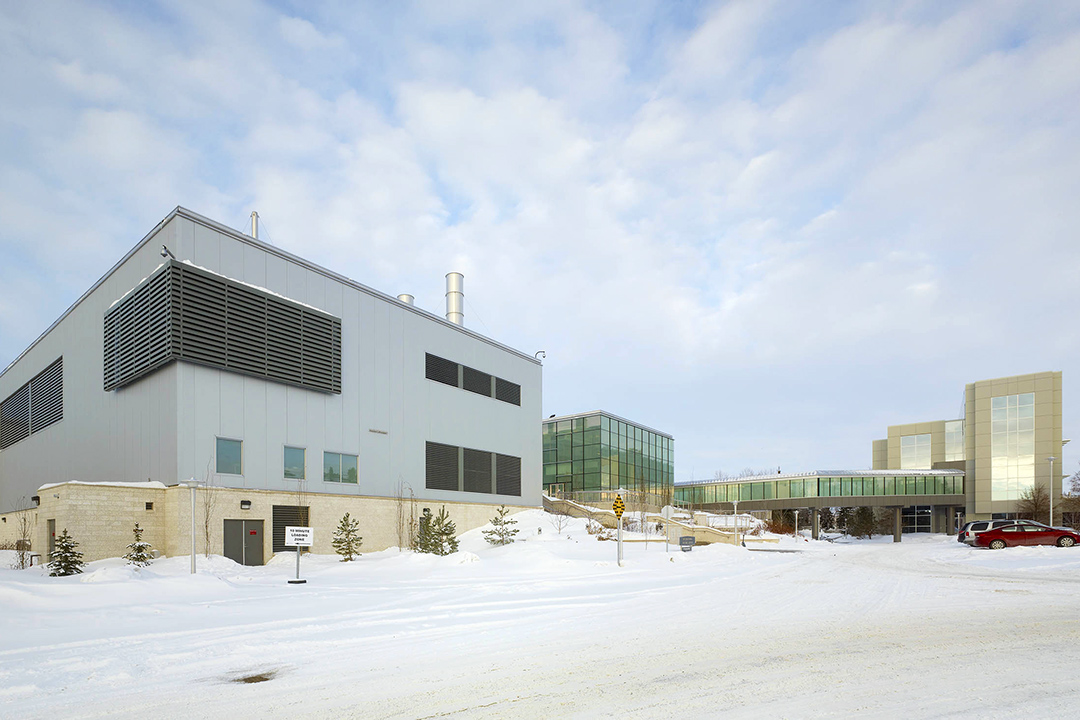
SHA and USask’s VIDO-InterVac partner to help ensure supply of N95 respirator masks
The Saskatchewan Health Authority (SHA) and the Vaccine and Infectious Disease Organization-International Vaccine Centre (VIDO-InterVac) at the University of Saskatchewan (USask) are partnering on a way to safely decontaminate and reuse N95 respiratory masks that are normally thrown away after each use.
“In the face of the global shortage of these N95 respirator masks, we are excited to partner with the SHA on the use of our infrastructure to help ensure an emergency supply for the safety of our frontline health care workers fighting the COVID-19 pandemic,” said VIDO-InterVac Director Dr. Volker Gerdts.
VIDO-InterVac will use a decontamination procedure called vaporized hydrogen peroxide (VHP) sterilization—a procedure VIDO-InterVac routinely uses to decontaminate its rooms and equipment in its containment Level 3 facility. The N95 respirator masks will be decontaminated by VHP to provide an emergency N95 back-up supply for hospitals if the need arises during the pandemic.
On March 28, the U.S. Food and Drug Administration authorized a VHP decontamination procedure for emergency use with N95 respirator masks. A recently published Duke University study showed successful use of the decontamination technique, and has announced plans to use the technique on N95s from three hospitals. Last week, researchers in Winnipeg confirmed that N95 masks can undergo multiple decontaminations with the VHP technique, while preserving mask effectiveness and fit.
This week, VIDO-InterVac successfully tested the decontamination procedure on several dozen used N95 respirator masks from SHA. Biological indicators are used to validate the effectiveness of the procedure, helping to ensure the respirator masks could be safely re-used.
Worn by health care workers and paramedics, N95 respirators are form-fitting masks designed to filter out pathogens. VIDO-InterVac could, if needed, decontaminate thousands of masks per week, Gerdts said.
“We are ready as early as next week to provide this as a back-up if needed,” said Gerdts. “The equipment required to undertake this VHP sterilization procedure is only available in a few places in North America, and we are very pleased that we have the capability to help out if needed in addressing a shortage of N95s.”
The possibility of using the same process to decontaminate other used personal protective equipment (PPE) may also be explored, he said.
“The SHA and USask’s VIDO-InterVac have come up with a potential solution for the safe and effective sterilization and re-use of PPE that could potentially save lives,” said USask neurosurgery professor and SHA surgeon Dr. Michael Kelly, who co-leads the SHA task force on PPE. “This is an excellent contingency plan and shows the ability of Saskatchewan organizations to come together to solve critical problems during the COVID-19 pandemic.”
The Winnipeg study was led by University of Manitoba researcher and critical-care physician Dr. Anand Kumar, partnering with Canada’s National Microbiology Laboratory and Health Sciences Centre Winnipeg, Manitoba’s largest health care facility.
“Saskatchewan is so fortunate to have VIDO-InterVac,” said SHA CEO Scott Livingstone. “In addition to their ongoing COVID-19 vaccine development, we are also utilizing their infrastructure to ensure we now have a contingency plan for PPE if traditional supply chains for PPE cannot be maintained. The safety of our health care workers is our primary concern.”
The University of Saskatchewan is undertaking critical research and contributing to global efforts to combat COVID-19. The University of Saskatchewan's Vaccine and Infectious Disease Organization (VIDO-InterVac) is a world leader in developing vaccines and technologies to combat infectious diseases. Your support of the COVID-19 Research Fund supports the increased efforts of researchers at the University of Saskatchewan to develop vaccines and treatments for COVID-19. Donate now.
Article re-posted on .
View original article.
